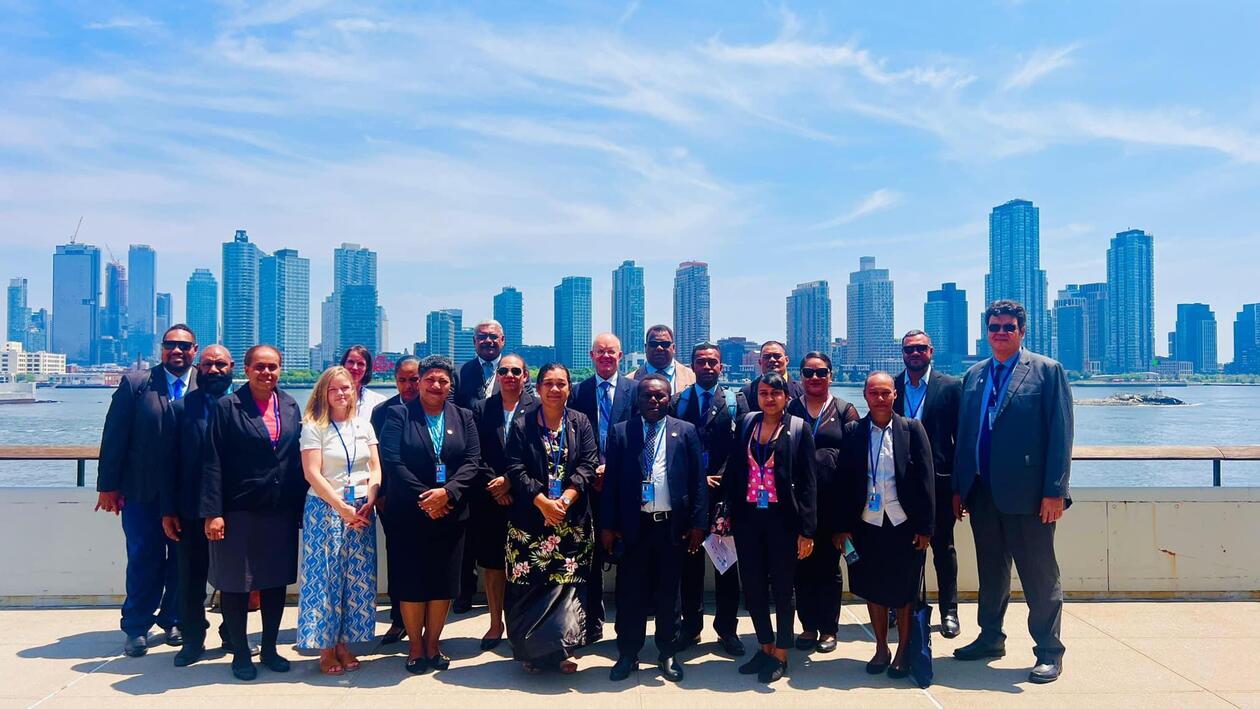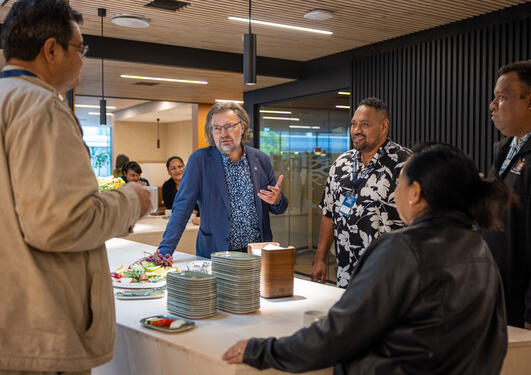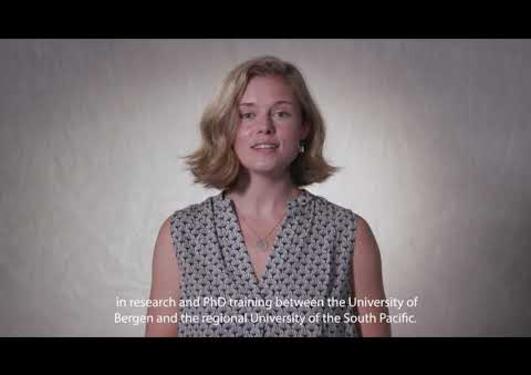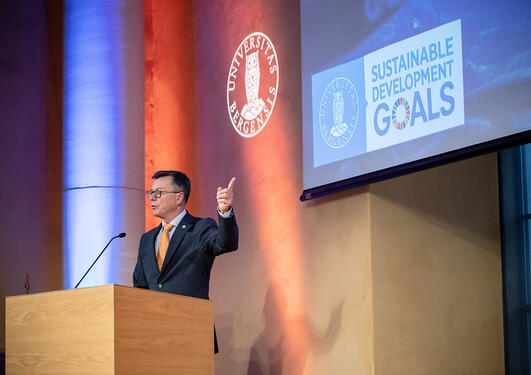The making of a unique PhD programme
The Norway-Pacific Ocean-Climate (N-POC) Scholarship Programme is unique both in its content and scope. Both for its clear science-policy objectives and the way it’s been shaped as a truly joint doctoral programme.

Main content
Already from the outset the Norway-Pacific Ocean-Climate (N-POC) Scholarship Programme promised to be something outside of the ordinary. Building on his many years as a classical anthropologist doing field work in the Pacific, around a decade ago Professor Edvard Hviding charted a new course for his research when he embarked on a science-policy mission taking in international diplomacy, ocean diplomacy, science diplomacy, and endless meetings and events in and around the UN system.
“This impact dimension was a key part also when developing the N-POC programme,” says Hviding, who prior to this led the EU-funded European Consortium for Pacific Studies (ECOPAS) and received the Research Council of Norway’s prestigious TOPPFORSK grant for the innovative Island Lives, Ocean States project.
A tale of two supervisors, two institutions
One of the unique features of the N-POC programme is the truly joint PhD degree, with the candidates having a supervisor at both the University of Bergen (UiB) and the University of the South Pacific (USP) exploring ideas of mutual capacity-building between the global north and the global south.
“I actually have three supervisors, one at UiB and two at USP. This as my PhD covers physical oceanography, chemistry and biology and this provides me with supervision in all three disciplines. I think our team has worked well with the biggest issue being to meet due to the time difference between Fiji and Norway,” says PhD candidate and N-POC cohort Ms. Laura Virginia Williams from Fiji on having supervisors at two different institutions.
“I have been very fortunate to have open-minded supervisors,” adds fellow candidate and N-POC cohort Mr. Kiali Molu from Tuvalu, “my supervisors from UiB and USP work collaboratively in addressing the issues that I seek from them.”
N-POC supports Norway’s national goals
N-POC builds on a long-term collaboration between the two universities. At the inaugural United Nations Ocean Conference in New York in June 2017, USP and UiB announced a voluntary commitment on climate change and ocean sustainability and N-POC builds on this.
“Norway is globally committed to offer science on the challenges created by climate change and ensure a sustainable use of our common ocean. The University of Bergen is proud to do its part to support these national goals and N-POC is an integral part of this,” says Rector Margareth Hagen at the University of Bergen, who was delighted to welcome the N-POC cohort to Bergen in June 2024.
“Together USP and UiB have long provided our policymakers with the scientific knowledge they need for the ocean we want. With N-POC this commitment from our two universities is reconfirmed. I look forward to following the progress of the programme and the valuable scientific contributions N-POC will give for the benefit of our ocean and climate into the future.”
Ensuring robust communication between candidates located in the Pacific and their supervisors at UiB is crucial,” states Yngve Brynjulfsen, a senior adviser at UiB’s Division of Research and Innovation. “We’ve incorporated provisions in our inter-institutional agreement requiring these candidates to participate in a range of online activities at UiB. This approach facilitates their integration into the research groups and schools they are associated with in Bergen.
Setting a gold standard for PhD programmes
Professor and Dean of the Graduate School Digby Race from the University of the South Pacific concurs with UiB’s rector.
“N-POC is important in so many ways and dimensions. It sets the gold standard for PhD scholarship programmes. It helps us understand how we can provide wraparound support for each and every one of our PhD scholars, so they can thrive with their research and ultimately complete in a timely manner and contribute to the Pacific region,” says Race.
“N-POC is incredibly complex with its cross-cutting interdisciplinary nature. It’s more engaging than your typical PhD programme, which can be quite an isolated pursuit. N-POC combines the scientific endeavour of a typical PhD with an added expectation for the N-POC scholars to contribute to society. Finishing with purely a PhD thesis, important and required, is not the only expectation we are seeking for each of these scholars,” he says adding that this raises the bar also for other PhD programmes.
“With this approach to PhD education, it will be truly interesting to learn where this group of candidates will end up in Pacific society, once they have graduated,” states senior adviser Brynjulfsen.




